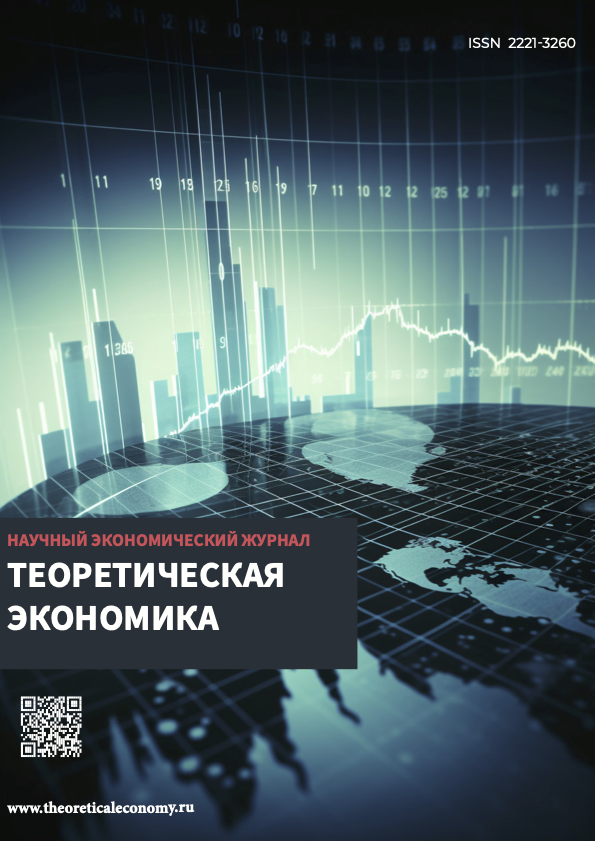Moscow, Moscow, Russian Federation
The article analyzes the features of digitalization in the Middle East region in the last two decades. The purpose of the study is to analyze the directions and features of digitalization of the Middle East countries (excluding post–Soviet republics), development trends and assessment of possible prospects for this process in the medium term. The relevance of the work is to identify and study the features of the digitalization process in the countries of Western Asia, as well as new phenomena and characteristics – to enrich the theoretical and more adequate understanding of practical aspects. The novelty of the study lies in the fact that we are exploring a relatively poorly studied region from the point of view of digital approaches. At the same time, the features of digitalization that have already formed and are emerging in the region, as well as problems in this area, in particular, "digital gaps" and external dependence, have been identified. The author uses the institutional method of scientific analysis, the method of comparisons, visualization. The author provides a scientific justification of the necessity and possibility of sustainable socio-economic development of the Middle East on the path of digitalization. It is proved that there are already some successes of the digital transformation of the countries of the region, although they are differentiated and significantly correlate with the level of socio-economic development and its dynamics. Digital government, the development of Internet access, electronic commerce, the creation of digital infrastructure, etc. have been developed. In order to further promote digitalization, including in the social sphere (medicine, education), it is important for the Middle East to coordinate its digital interaction at the regional level and intensify international cooperation in this area.
Middle East; digitalization; socio-economic development; digital policy; digital cooperation; digital economy.
1. Andreeva E.L., Ratner A.V. Faktory neoindustrial'nogo eksportnoy specializacii regiona / V sbornike: Klasterizaciya cifrovoy ekonomiki: Global'nye vyzovy. Sbornik trudov nacional'noy nauchno-prakticheskoy konferencii s zarubezhnym uchastiem. V 2-h tomah. Pod redakciey D.G. Rodionova, A.V. Babkina. 2020. S. 401-411.
2. Arabskiy Vostok v poiske optimal'nyh social'no-ekonomicheskih resheniy / Filonik A.O., Fedorchenko A.V., Solov'eva Z.A., Bocharova L.S., Mahmutova M.I., Babenkova S.Yu. Moskva, 2022.
3. Aydrus I.A.Z., Asmyatullin R.R. Kadry kak faktor razvitiya cifrovoy ekonomiki v stranah SSAGPZ // Segodnya i zavtra Rossiyskoy ekonomiki. 2018. № 91-92. S. 20-26.
4. Gukasyan G.L. Sektor IKT v usloviyah modernizacii ekonomiki arabskih stran – eksporterov nefti (novye tendencii) // T-Comm: Telekommunikacii i transport. 2015. T. 9. № 3. S. 76-81.
5. Karpunina E.K., Sobolevskaya T.G. Ekonomicheskaya bezopasnost' regionov i novye cifrovye gorizonty // Vestnik Tverskogo gosudarstvennogo universiteta. Seriya: Ekonomika i upravlenie. 2020. № 4 (52). S. 136-148.
6. Kirillov V.N., Gavryushin O.Yu., Savinov Yu.A., Taranovskaya E.V. Cifrovaya transformaciya mezhdunarodnyh sdelok kupli-prodazhi // Mezhdunarodnaya ekonomika. 2020. № 2. S. 14-25.
7. Krasnyh S.S. Teoreticheskie podhody k opredeleniyu suschnosti cifrovizacii i tendencii ee razvitiya v mirovoy ekonomike // Rossiya i Aziya. 2022. № 7 (21). S. 87-96.
8. Melan'ina M.V., Verenikina A.Yu. Razvitie cifrovoy ekonomiki v sovremennom mire // Ekonomika i predprinimatel'stvo. 2019. № 7 (108). S. 191-194.
9. Norec N.K, Stankevich A.A. Cifrovaya ekonomika: trendy i perspektivy // Innovacionnye klastery sistem: usloviya, rezul'taty i vozmozhnosti V Mezhdunarodnaya nauch.-prakt. konf. – Moskva, 2017.
10. Rusakovich V.I. Ekonomicheskaya integraciya stran SSAGPZ i vliyanie vneshnego faktora // Rossiya i Aziya. 2017. № 1. S. 50-59.
11. Smirnov E.N., Antropova M.Yu. Masshtaby i tendencii cifrovoy transformacii mirovoy promyshlennosti // Vestnik universiteta. 2022. № 5. S. 53-60.
12. Ugrozy informacionnoy bezopasnosti v krizisah i konfliktah XXI veka / Topychkanov P.V., Evseev V.V., Romashkina N.P., Idayatov A.K., Kovalev V.I., Romashkina N.P. Moskva, 2015. 151 s.
13. Shkvarya L.V., Haylin Yuy. Cifrovaya ekonomika v Kitae: sovremennye tendencii // Ekonomika i predprinimatel'stvo. 2020. № 3 (116). S. 184-187.
14. Shkvarya L.V., Ahmed N.N.A. Ekonomika Iraka i neobhodimost' diversifikacii i cifrovizacii // Gorizonty ekonomiki. 2022. № 2 (68). S. 85-91.
15. Aidrous I.A., Asmyatullin R.R., Glavina S.G. The development of the digital economy: GCC countries experience / Industry Competitiveness: Digitalization, Management, and Integration. Vol. 2. Ser. "Lecture Notes in Networks and Systems, 280". – Luxembourg, 2021. – S. 163-169. DOI:https://doi.org/10.1007/978-3-030-80485-5_21
16. Asmyatullin R.R., Tyrkba K.V., Ruzina E.I. Smart cities in GCC: comparative studyof economic dimension / IOP Conference Series: Earth and Environmental Science. International Science and Technology Conference "EarthScience". 2020. S. 062045. DOI:https://doi.org/10.1088/1755-1315/459/6/062045
17. Global E-Government Development Index / [Elektronnyy resurs] – Rezhim dostupa: https://gtmarket.ru/ratings/e-government-development-index (data obrascheniya 23.02.2023).
18. Global Innovation Index 2022, 15th Edition / [Elektronnyy resurs] – Rezhim dostupa: https://www.wipo.int/global_innovation_index/ru/2022/index.html (data obrascheniya 23.02.2023).
19. Network Readiness Index 2022 / [Elektronnyy resurs] – Rezhim dostupa: https://networkreadinessindex.org/ (data obrascheniya 23.02.2023).
20. UNCTAD / [Elektronnyy resurs] – Rezhim dostupa:https://unctadstat.unctad.org/wds/TableViewer/tableView.aspx?ReportId=96 (data obrascheniya 23.02.2023).
 This work is licensed under Creative Commons Attribution-NonCommercial-NoDerivatives 4.0 International
This work is licensed under Creative Commons Attribution-NonCommercial-NoDerivatives 4.0 International












